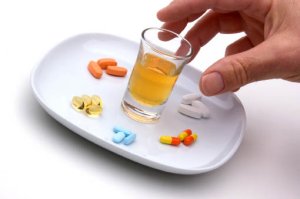Almost any drug taken in surplus can cause an individual to experience the effects of an overdose. Some approved medicines and leisure drugs taken in surplus or without medical direction can prove lethal unless quick care is accessible.
The effects of any drug will differ depending on the temperament of the substance, the age, mass and general fitness of the casualty, and whether any alcohol was taken at the same time.
Many young individuals are exposed to the hazards of taking a ‘leisure drug’ at a social gathering or entertainment spot, often without knowing the temperament of the substance concerned. Occasionally a mixture of drugs may be consumed in the anticipation of enjoying a ‘high’, but this can confirm to be a lethal step and critically complicate the medical treatment. The first aider is incapable of giving any precise treatment for the casualty of a drug overdose.
Alcohol consumed in surplus can have a severe result on the body. In the early phase, the casualty might be oblivious of risks, loss of organization, and is at risk of harm. Later the casualty is prone to become unconscious and needs close management and airway care to avoid obstruction and possible fatality.

Symptoms and signs (not all may be present)
- tiredness, loss of organization and collapse
- bewilderment or disorientation
- distorted breathing pattern or breathing trouble
- mood alteration including excitability, hostility or despair
- pale, chilly and sweaty skin
- queasiness or nausea
- convulsions
- abdominal pain
How you can assist
- Gauge the casualty
- Verify the level of consciousness. If the casualty is not completely conscious and vigilant, rotate them onto their side and make sure they are not left by themselves.
- Comfort the casualty
- Speak to the casualty in a calm and encouraging way.
- Sometimes casualties might become restless. Recruit friends or relatives to calm and encourage the casualty. Think about phoning the police if the safety of the casualty or others becomes endangered.
- Classify the drug taken
- Ask what the casualty has consumed, how much was consumed, when drug was taken, and if it was digested, inhaled or inserted by a needle.
- Look for proof that may help the hospital personnel with treatment and keep any needle for analysis.
Several drugs produce severe overheating of the body, and if this is observed, get rid of unnecessary clothes to let air reach the skin surface to help with cooling.
Call for an ambulance as soon as possible.
Related Video on Drug and Alcohol Overdose
http://www.youtube.com/watch?v=OghWKPcq6Pc